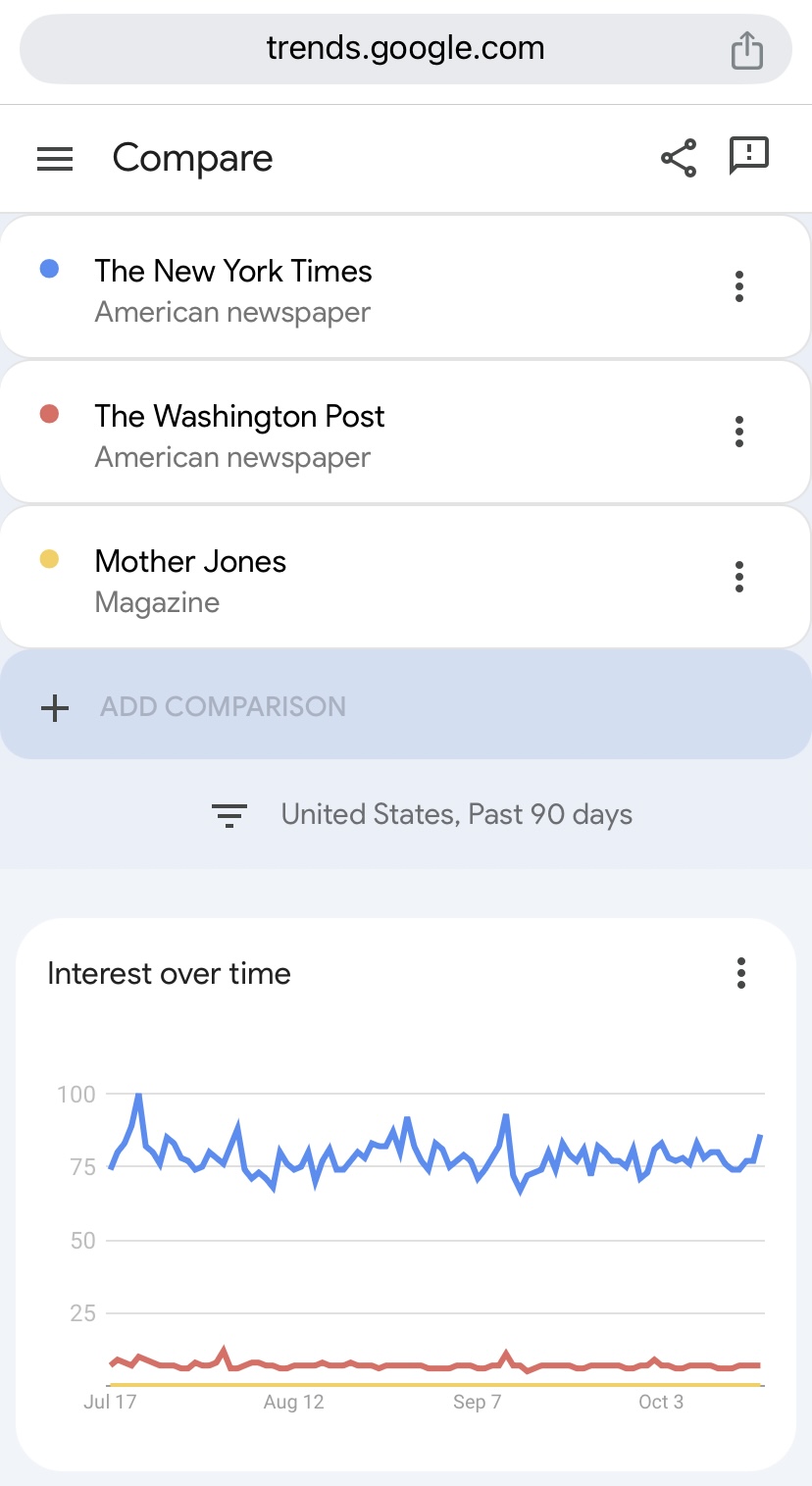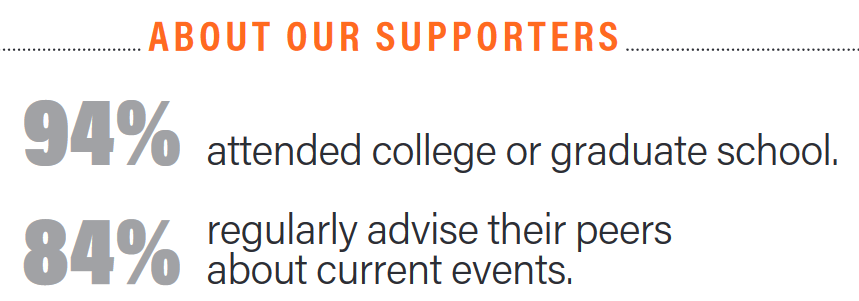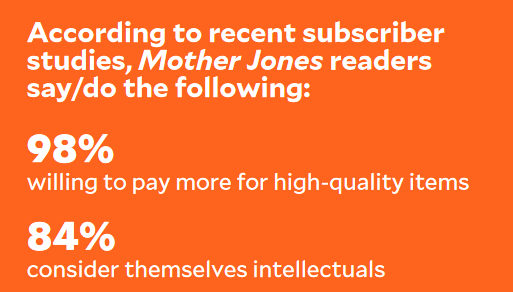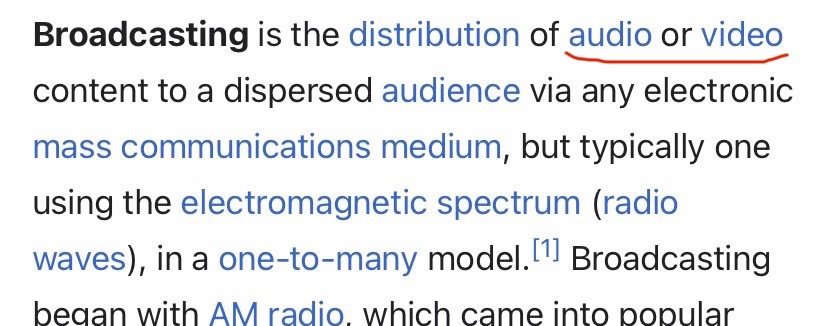Resolves with story of accusation in mainstream print or broadcast media.
🏅 Top traders
| # | Trader | Total profit |
|---|---|---|
| 1 | Ṁ9,522 | |
| 2 | Ṁ6,269 | |
| 3 | Ṁ1,647 | |
| 4 | Ṁ1,309 | |
| 5 | Ṁ939 |
People are also trading
Absolutely noone considers "Mother Jones" mainstream media, it is a left-wing progressive investigative magazine. Not only is its audience tiny (8 million readers constitutes less than 3% of the US population, and that's still a huge overestimate considering "8 million" is their own self-reported number and it counts literally anyone who clicks on one of their articles while researching something; a better metric would be their number of subscribers which is something like 250k), but its audience is highly niche. 94% are college educated in contrast to 33% nationally.
When someone says "mainstream media," they think of NYT, NBC, CNN, WSJ, etc. An actual source considered credible and consumed by hundreds of millions of people. If it counted just any relatively large magazine, of which there are dozens, I doubt anyone would've bet on this market, since any magazine could just publish anything. However, the "mainstream print or broadcast media" confers the connotation of the report being an actual major, credible report that is seen by the American mainstream.
In my opinion, a short passage that's more of a fact-checking piece than a full article about an unsubstantiated claim made by an anonymous QAnoner on Twitter/X hardly counts as a mainstream credible report on sexual harassment claims made against Walz. I'd argue the "print or broadcast media" part is especially relevant here, and it's not just semantics: due to the nature of the Internet, modern media companies are able to publish thousands of short digital articles online everyday, on basically any niche or minor topic. But a story has to reach a certain level of importance before it's actually printed in their newspaper or broadcast (which means an actual reporter will talk about it in audiovisual format). As far as I can see, every piece of media on this story has been digital media.
MSN News also doesn't count at all. MSN News isn't even a media source, it's a news aggregator site that takes articles from other sources and aggregates them. The actual article on MSN News was written by "Check Your Fact," a fact-checking source that, as far as I can tell, is run by a singular person who just does minor fact check articles everyday.
A note to those who wagered on this market.
The market dropped below 2% when there was no evidence of an accusation.
Then, two days before the market closed, there was an accusation and the market spiked to 75%. This was with no intervention from me.
As we’ve discussed, this market was based on whether Tim Walz would be accused of a sex crime. He was.
The debate on the legitimacy of the market since it closed is not on whether an accusation was made, but on whether Mother Jones, a National Magazine Award-winning magazine with 8 million monthly readers, is considered mainstream.
Respect to those who question whether or not Mothers Jones should be considered mainstream. But to those who accuse me of manipulating the market for my own personal gain, the moves in the market from 2% to 75% happened based upon the news and not because of any manipulation. If I had it to do over, I would have resolved the market sooner based upon that reporting.
I will be more precise in defining the terms of resolution if I create any future markets.
@cthor idk let’s ping @mods for a, like, sort of clarification on this situation?
My personal opinion is that an ambiguous markets do make sense if resolved correctly, but the “correct resolution” in case of ambiguous markets should…often come down to a “resolution to percentage”, basically?
It’s like…suppose there’d be a market “Will some famous actor come to a next Manifest?”. Like, if you then come to Manifest and see a Leonardo DiCaprio staring at you - well then a market should resolve Yes, obviously. On the other hand- if there’d be only Yudkowsky with Scott Alexander and not a single other soul - then it’s a No. And, basically, the “s**t hits the fan” situation is when someone like Dylan Gelula shows up. Like is she an actress? Yes. Is she famous? …a little I guess?
On this market what we seems to be having as a main evidence for a Yes resolution is a Mother Jones article. This is how MJ stands against an undoubtfully “mainstream” media on Google Trends:

(with NYT removed it’s slightly better - like it’s not an absolutely straight line, at least)
I mean, together with the fact that the question was at 1.5-3% for a last 6 hours of its life, and with the fact that a creator has profited…well idk the situation seems unclear 🤷
@McLovin I think you're right, but also quibbling over the definition of "mainstream media" is putting the cart before the horse. The spirit of this market as per what would even be of interest to anyone is "Will a serious media outlet carry water for this accusation?"
There's far less interest in the question "Will a serious media outlet write an article about this baseless accusation?" (Hence why the market is not written anything like that, despite it being a far more accurate.) The description does not aim to clarify this but rather makes the title even more deceiving by trying couch it in some faux reasonable terms (i.e. "Oh well not just any random accusation, I mean one appearing in mainstream media of course!")
This market exists to carry water for and profit off the worst kind of horrible agitprop. I did not bet on it because it looked a lot like that and the creator's behavior merely reaffirms that suspicion.
From what I've seen, Manifold mods defer a great deal to market creators. So policy wise I don't think they will do much here, but I don't think that policy is very good and this market makes a good example as to why. I just voice my opinion anyway.
@McLovin Since you pinged for moderator intervention, I will highlight the section from the guidelines that seems to apply in this case:
If a market resolution has some ambiguity and there is dispute over the correct resolution, the creator will have the final say. However, we usually recommend an N/A resolution under these circumstances, especially if the ambiguity is at the fault of the creator.
In general, the site's rules give market creators significant control over their markets and the main situation where a market creator's resolution could be overturned would be if it was "blatantly incorrect". I've browsed the comment threads from the past few days and everything about this situation seems to be covered by the above rule and Jeff Berman seems to stand behind the Yes resolution. If you're unhappy with the way the market operated and resolved, you do have the opportunity to provide feedback to the creator with the star rating box.
---
Since you might not be happy to hear that, I'll share a follow-up clarification of the "ambiguous resolution" situation from the mod guidelines, which tell us when to take action and when to just write comments:
The creator “misresolves” the market but there is room for interpretation and it’s defensible, even if poorly. In these instances you can comment suggestions, but not change the resolution, and leave it at the creator’s discretion.
If the creator is a large benefactor of an ambiguously resolved market then give them the benefit of the doubt the first time with a warning unless it’s very obvious it’s fraudulent. If it’s fraudulent or a repeat infraction, N/A if ambiguous or correct it if there is a correct resolution and report it to the admins for potential fines/bans.
Again, the guidelines favor letting the creator's resolution stand, even if they were a large benefactor of the situation. But, if this was to happen multiple times, then we would be encouraged to intervene.
@Eliza thank you, well, sorry for wasting your time then.
Since you might not be happy to hear that…
I mean, I’m more or less ok with the situation, I guess. I think that there are other users who are…more unhappy I suspect.
I also think that all that is a sort of a great food for thought, like what exactly Manifold should be doing about such stuff. What seems to me surprising in this case is a scope of a disagreement between a market and a creator - like it literally got resolved to a 100% while being at 1% market-wise, lol (at 1.4% to be exact). Well, idk, let it be I guess 🕊️
@JeffBerman
I think the main issue with the resolution is that Mother Jones is quite small even compared to The New York Times, with just 0.25 million versus 8.83 million subscribers (https://www.motherjones.com/about/financials, https://en.wikipedia.org/wiki/The_New_York_Times). Fox News reaches 87 million households (https://en.wikipedia.org/wiki/Fox_News).
It’s really a stretch to call Mother Jones mainstream rather than (left) niche, given that it reaches only a tiny fraction of the audience of the real mainstream. The New Republic, with most likely less than 0.05 million subscribers, is even smaller than Mother Jones (https://en.wikipedia.org/wiki/The_New_Republic). MSN/Yahoo News are just news aggregators, not print media, so they shouldn't relevant for the resolution.
@ChaosIsALadder Mother Jones reaches more than 8 million people monthly (https://assets.motherjones.com/advertising/2021/Mother_Jones_2021_MediaKit.pdf). It is 48 years old,
and was named Magazine of the Year. If Mother Jones is not a mainstream media magazine, there are no mainstream media magazines.
"Mainstream print or broadcast media" as used in the market description is to say media recognized as established, to prevent a random accusation meeting the requirements for resolution. The market was about whether or not Walz was publicly accused of a sex crime, as verified by an established media source.
@JeffBerman
I understand that you meant an "established" or "credible" media source. However, the criterion you set was "mainstream media," which means something else (see https://en.wikipedia.org/wiki/Mainstream_media):
"In journalism, mainstream media (MSM) is a term and abbreviation used to refer collectively to the various large mass news media that influence many people and both reflect and shape prevailing currents of thought."
Mother Jones' audience of 8 million is niche; for reference, see https://advertising.nytimes.com/audience-and-insights/:

Their audience is also definitively niche (https://assets.motherjones.com/advertising/2021/Mother_Jones_2021_MediaKit.pdf):


Earning the Magazine of the Year award makes Mother Jones about as mainstream as the highly prized (and likely excellent) niche indie movie that almost no one heard about.
@ChaosIsALadder it really feels like all such situations should be “resolving to percentage”, basically. Like, was there some media coverage of the accusations against Tim Walz? Yeah. Had Fox News or NYT devoted even a tiny fraction of their time to those accusations? Seems like they haven’t. Hence the need for a percentage resolution, I guess…
To those who are surprised this resolves YES for an accusation that was labeled fake by the publishing news outlet, this market was about whether or not there was an accusation, regardless of its veracity.
As I said in below discussions before this week, "Regardless of how the story is characterized, this market resolves with an accusation reported in mainstream print or broadcast media."
The market was about the existence of the accusation. Whether the claim is genuine or fake is another question.
Fwiw, Mother Jones warning the public that someone tried to create fake news about a sex crime is not the same as being "publicly accused of a sex crime (in mainstream media)."
This should not have resolved yes, which is exactly why I stayed away from this market.
This often happens with these subjective markets; something starts with one intention, then gets comments-litigated into meaning something it initially didn't, ending with punishing those who bought the opposite position in good faith.
@GazDownright It's an interesting distinction.
This market was not about an accusation being made by or in the mainstream media.
This market was about whether or not there would be a public accusation of a sex crime.
The only role of the media here is to report that an accusation was made. In this way, the media fulfills its historic role of reporting the news, rather than creating it. Whether or not the media reporting the accusation supports or refutes the accusation is not relevant to the question of whether a public accusation has been made.
@GazDownright I tried not to litigate in the comments but tried to ask what would count in good faith. I think NO would have been a completely reasonable resolution but did trade based on the clarifications provided.
@JeffBerman Fair. Every point I outlined above might not apply to this market, I'll take your word for it.
However, the issue with people losing mana based not on having made the wrong prediction, but the wrong interpretation, is applicable also here.
@Sketchy Yeah, I wasn't calling out anyone specifically. It's a general observation on how we tend to let the ends justify the means in these situations.
@GazDownright I tried to be clear about what this market is and what would be the requirements for resolution. The results of this seem objectively clear:
"Will Tim Walz be publicly accused of a sex crime before October 15?"
Yes, he was publicly accused of a sex crime before October 15.
"Resolves with story of accusation in mainstream print or broadcast media."
Mother Jones, a 48-year old magazine with a reach of 8 million readers, reported on it.
If people want to take issue with the accusation or on the tone of the story reporting it, that doesn't change that there has been a public accusation of a sex crime that was reported by the due date by a mainstream print media source.
I've had someone accuse me of bending the rules to benefit my market position, which I made a concerted effort not to do. I made equally large bets in a similar market I made on JD Vance, which resolved NO. In any market I create, the integrity of the resolution is more important than any particular outcome.
@JeffBerman @GazDownright I wonder, is it…a certainty that MJ going to actually print this article? Because, I mean…we’re talking print media here, they haven’t printed anything yet as I understand.
@JeffBerman it would have improved clarity to include any specifics in the market description.
To me the title with description read like there had to be legitimate accusations, not fake ones by a notorious troll account (which is a non-story in my opinion).
It's good practise to elevate clarifications from the comments into the description.
Ps: I've not accused you of anything other than setting up an ambiguous market that would have benefitted from more clarity; if that's even an accusation. Meant as constructive criticism.
@GazDownright I…legit got confused by a meaning of a term “broadcast media”. Like, Wikipedia for example basically seems to limit it to a distribution of audio or video content, of which text articles is neither:

But, I mean, this is starting to look as just a total disregard of “spirit of a question over a letter” approach. The truth seems to be that MJ is just quite small by a “mainstream media” standards, and this question should actually “resolve to percentage” I guess…
Mother Jones is a well-established print magazine, founded 48 years ago. Its total reach is more than 8 million monthly readers. It was named Magazine of the Year in 2017, won General Excellence awards three times and was a finalist for General Excellence 12 times since 2001.
Based upon its story, along with those in MSN, Yahoo News, and the New Republic, this market is resolved YES.
Mainstream media typically refers to news outlets like The New York Times, The Washington Post, CNN, BBC, or Fox News. As far as I can see, none of these outlets published the story.
Mother Jones, Daily Dot, Yahoo News and MSN are all digital not print media. None is a broadcast medium (Resolves with story of accusation in mainstream print or broadcast media.)